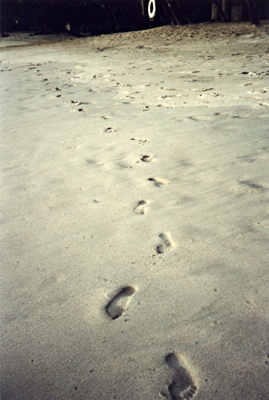All Nonfiction
- Bullying
- Books
- Academic
- Author Interviews
- Celebrity interviews
- College Articles
- College Essays
- Educator of the Year
- Heroes
- Interviews
- Memoir
- Personal Experience
- Sports
- Travel & Culture
All Opinions
- Bullying
- Current Events / Politics
- Discrimination
- Drugs / Alcohol / Smoking
- Entertainment / Celebrities
- Environment
- Love / Relationships
- Movies / Music / TV
- Pop Culture / Trends
- School / College
- Social Issues / Civics
- Spirituality / Religion
- Sports / Hobbies
All Hot Topics
- Bullying
- Community Service
- Environment
- Health
- Letters to the Editor
- Pride & Prejudice
- What Matters
- Back
Summer Guide
- Program Links
- Program Reviews
- Back
College Guide
- College Links
- College Reviews
- College Essays
- College Articles
- Back
What to Make of Me
My father is Chinese, my mother Libyan. If Genghis Khan had made it all the way to North Africa, the world might today be full of people who look like me. As it is, I stand out, an anomaly no matter where I go. People look at me, at my curly hair and almond-shaped eyes, my full lips and light brown skin. I don't look like anyone they’ve seen; they don’t know what to make of me.
“Perception is grounded in our experience,” says neuroscientist Beau Lotto. “We never see what's there, we never see information, we only ever see what was useful to see in the past.”
For most of my life, I lived in Xiamen, a city in southeastern China. Still, whenever I'm there, people treat me like a foreigner. When I was seven or eight and my mother would take me to the market, the Chinese children would point at me and try to touch my hair. People would stare at my mother, too, but with her North African features unalloyed by any Asian characteristics, she was foreign in a way that made sense to people. When we visited Benghazi or Tripoli, she blended seamlessly into the crowds at the souk—but just as in the Chinese market, I always stood out: an ethnic chimera, a mysterious amalgam, a perpetual other.
We live in a time when some people have the luxury of dismissing race as a mere social construct and prejudice as archaic, while others must flee their homes and countries to escape ethnic cleansing, or live under the long shadow of institutionalized racism, past and present. All of these forms of strife boil down to a single message: “You do not belong here. You are not part of us.”
This refusal to expand our circles, this insistence on seeing only the walls we ourselves have built to limit our concept of the world, is what prompted Lotto to ask, in his TED talk on moving past our evolution-bred aversion to uncertainty, “How can we ever see differently?”
I have been privileged to travel and to meet people from all over the world. This has helped me begin to “see what's there” rather than always rely on old information designed to insulate our minds and reassure us with comforting certainty. When I visited Djupivogur, a small fishing village on the east coast of Iceland, I felt, at first, that familiar feeling of being an outsider. What am I doing here, I asked myself, in this little town on the edge of a windswept island in the North Atlantic? I don't belong here, do I? Yet, moving past my doubts, I realized that actually, among those blond-haired Scandinavians, I felt as much at home as I do anywhere.
My hybrid background, my strange ethnicity, the thing that for so long made me feel like I belonged nowhere, has in the end helped me become a person who tries to approach everyone and everything with an open mind. It doesn't matter if other people don’t always know what to make of me. I feel like part of us; I feel like I belong.

Similar Articles
JOIN THE DISCUSSION
This article has 0 comments.

As somone who is part Caucasion, part Asian and part African, I am somewhat of an ethnic anomoly. This has simultaniously differentiated me, but also made me feel surprisingly connected to others. I thought this would be an interesting topic to explore, given our current political climate as well as the fact that we are increasingly becoming a society that has to deal with "otherness" pretty regularly.